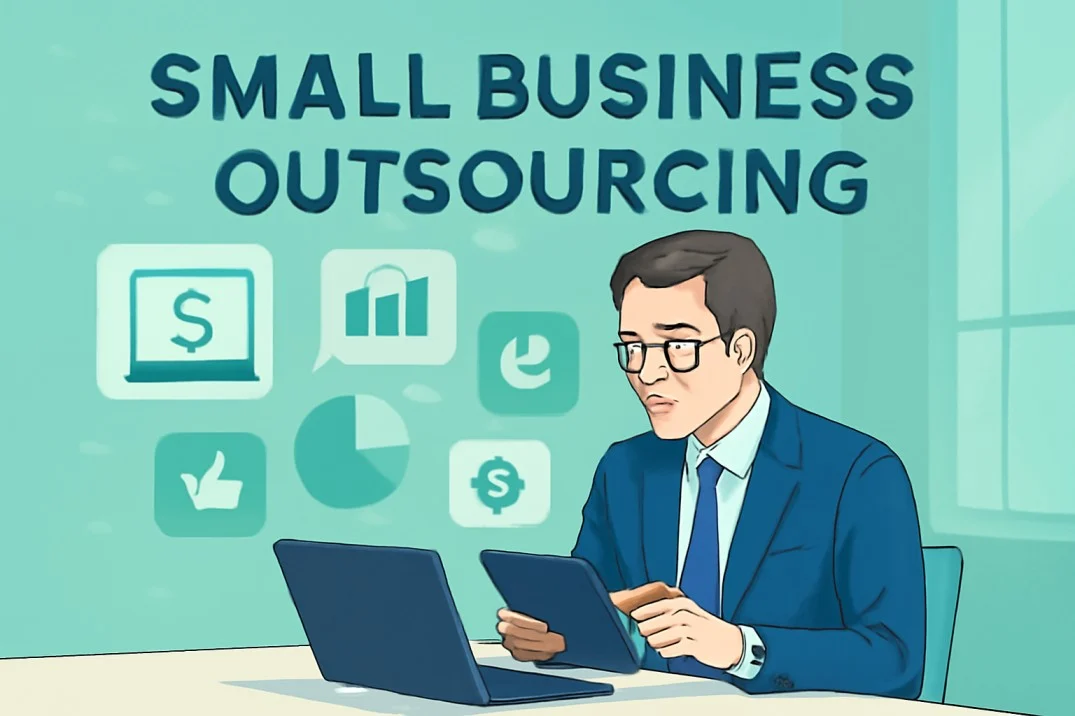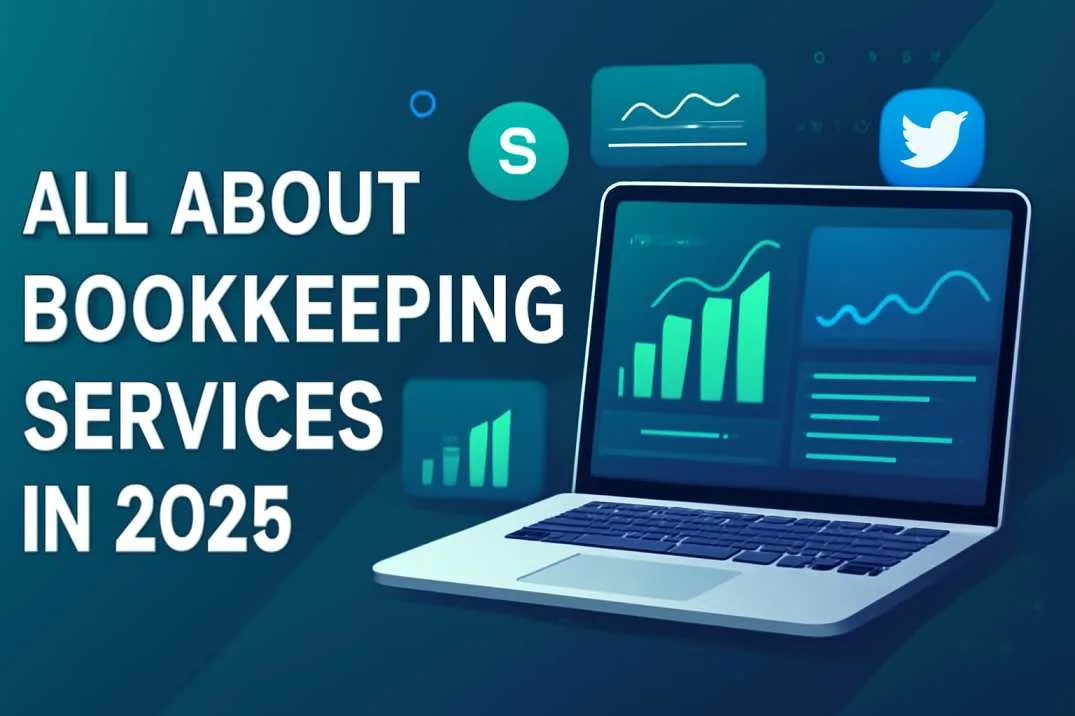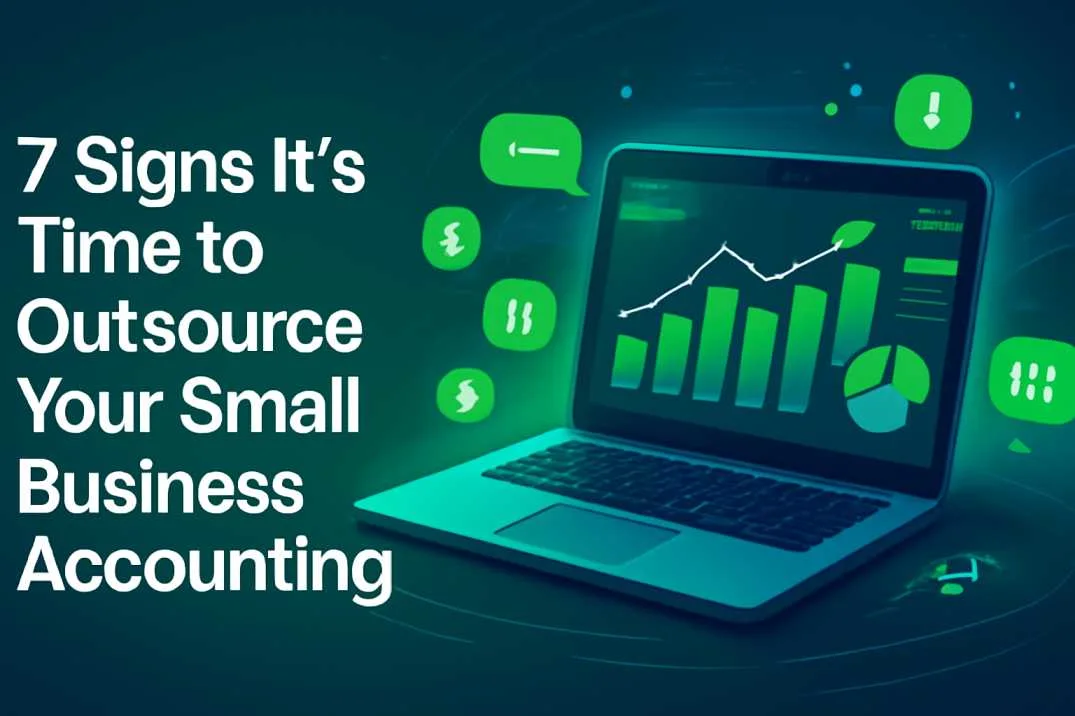As your small business expands, you may encounter a pivotal question: When is it time to hire a Chief Financial Officer (CFO)? Traditionally, CFO services were essential only for large corporations. However, in today's dynamic business landscape, small business owners are increasingly recognizing the value of strategic financial leadership. Whether you choose a fractional CFO or outsource your financial needs, having a skilled business CFO can significantly impact your company's growth and long-term success.
What Role Does a CFO Play in a Small Business?
A CFO is not just an expert in financial reports. They provide strategic leadership, overseeing the financial health of your business. Their role extends to:
-
Financial Strategy: Developing a financial roadmap that aligns with your business goals, ensuring that every decision contributes to long-term growth. A business CFO helps you develop a robust financial strategy to make informed decisions and avoid costly mistakes. A solid financial strategy is the foundation of your business’s success.
-
Cash Flow Management: Ensuring consistent cash flow to cover operational needs and seize new opportunities. Your business CFO will help maintain liquidity and prepare for potential financial shortfalls. Managing cash flow efficiently will allow your business to expand and remain competitive.
-
Risk Assessment: Managing financial complexity by identifying risks and offering actionable strategies to mitigate them.
-
Compliance and Reporting: A CFO ensures compliance with tax regulations and prepares accurate financial reports to avoid penalties. This attention to financial reports ensures you meet legal and financial standards.
-
Capital Allocation: From raising capital to investing in new initiatives, a business CFO ensures you are making cost-effective financial decisions that propel growth.
Unlike day-to-day bookkeeping, which focuses on transactions, a CFO looks at the big picture and provides actionable insights for better business decisions.
Can Small Businesses Benefit from a CFO?
Many small business owners assume that only larger companies need a CFO. However, even if your revenue is under $5 million, a fractional CFO can provide invaluable support. As your business grows, the financial complexity of operations increases, and a CFO can help you manage it all.
By bringing in a CFO, you gain access to financial expertise that helps you plan for long-term goals. Whether you’re exploring funding options, handling acquisitions, or scaling operations, a CFO helps ensure you are prepared for the next big step.
When Should a Small Business Hire a CFO?
Knowing when to bring in a CFO is crucial for any growing business. Here are a few signs that it might be time:
-
Expansion: When your business starts expanding into new locations, launching new products, or diversifying its service offerings, the complexity of financial operations increases. A business CFO will help ensure that your financial strategy aligns with the new goals. A financial strategy that is aligned with your business expansion is critical to success.
-
Capital Raising: If you're seeking investment or preparing for a funding round, a fractional CFO can provide the necessary expertise to manage investor relations, prepare financial reports, and ensure you are in compliance with regulatory requirements. CFO services also include preparing your business for a successful funding round.
-
Financial Complexity: As your business grows, managing cash flow and ensuring consistent profits becomes more complicated. A fractional CFO can help you streamline your operations and manage financial complexity efficiently. A fractional CFO provides the strategic financial leadership that you need as the business matures.
Even if your business has not yet reached $5 million in revenue, these signs suggest that the time for a CFO has arrived.
Full-Time CFO vs. Fractional CFO
When considering whether to hire a CFO, you must weigh the pros and cons of a full-time vs. fractional CFO:
-
Full-Time CFO: If your business generates $50 million or more in revenue, a full-time CFO may be necessary to oversee all aspects of your business finances. This option, while comprehensive, is often cost-effective for large enterprises. However, it can be a significant investment in both salary and benefits.
-
Fractional CFO: For small and mid-sized businesses, hiring a fractional CFO is often more affordable. They work part-time, providing the financial expertise your business needs without the high cost of a full-time hire. A fractional CFO offers a cost-saving solution that allows you to access top-tier advice without stretching your budget. This can be a great solution for businesses that need expert advice on a long-term basis but can’t yet afford a full-time hire.
Benefits of Hiring a Fractional CFO
A fractional CFO brings a wealth of benefits to small businesses, including:
-
Cost-Effective Expertise: With a fractional CFO, you can leverage financial expertise without the full-time salary and benefits costs of a full-time hire. This makes it an ideal option for small businesses.
-
Scalability: As your business grows, you can scale the involvement of your fractional CFO, ensuring they provide the right level of support at the right time.
-
Strategic Financial Leadership: With the right financial strategy, a CFO will guide your business through both expansion and challenging times.
-
Investment Readiness: When you’re ready to seek funding, a fractional CFO will prepare financial reports and help you ensure you're in the best possible position to secure capital. These financial reports are crucial for potential investors.
-
Cost Saving: By utilizing CFO services, you are making a cost-effective choice to streamline your operations and plan for long-term growth.
When Does a Small Business Need a CFO?
Typically, small businesses should consider bringing in a CFO once they surpass the $1 million to $5 million revenue mark, or when the complexity of their financial strategy and operations becomes overwhelming. If you are struggling with cash flow, facing operational challenges, or planning for long-term growth, the expertise of a CFO is invaluable.
Conclusion
Hiring a CFO can be a game-changer for your business. Whether you hire a fractional CFO or bring in a full-time executive, a CFO helps navigate financial complexity, align your financial strategy with your growth goals, and provides financial leadership to guide you through the next phase of success. By investing in CFO services, you are ensuring that your business remains financially healthy, adaptable, and primed for success.





